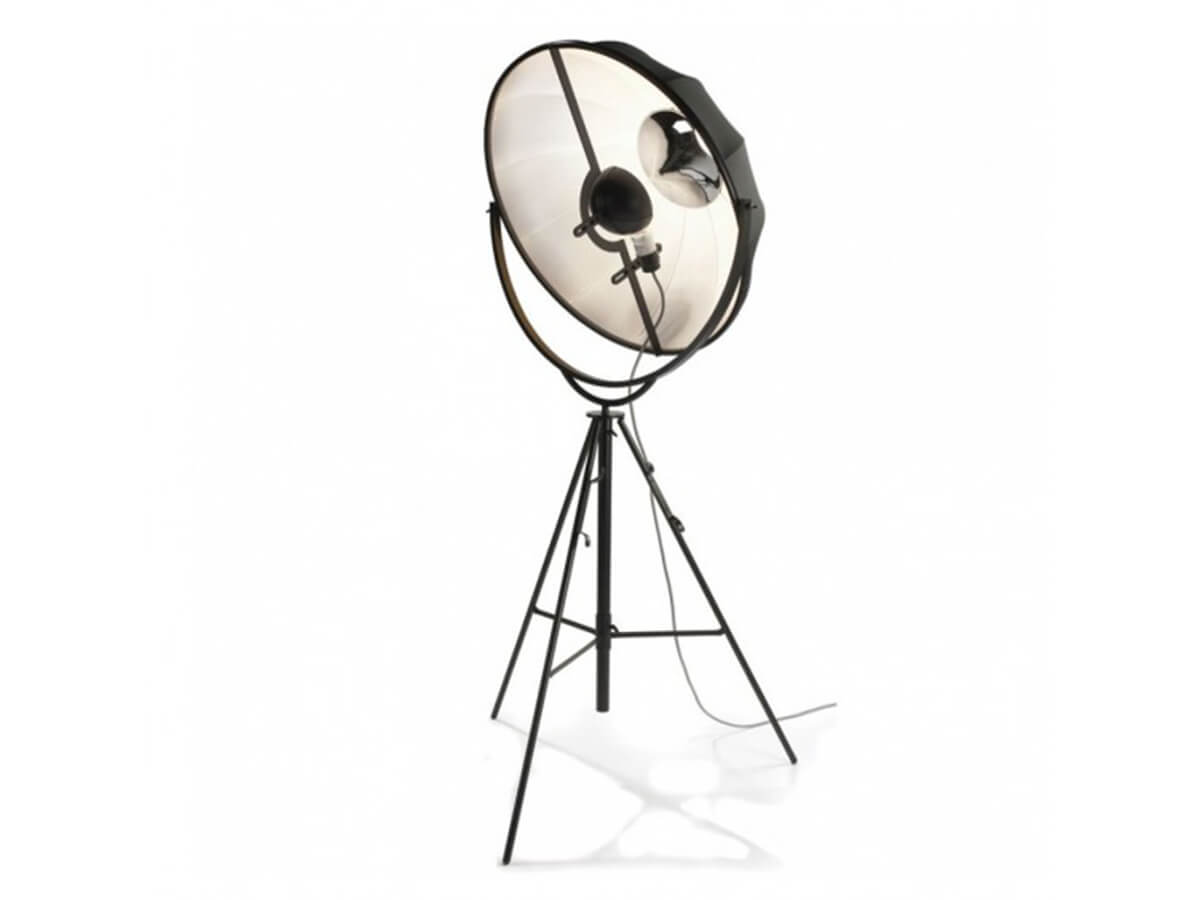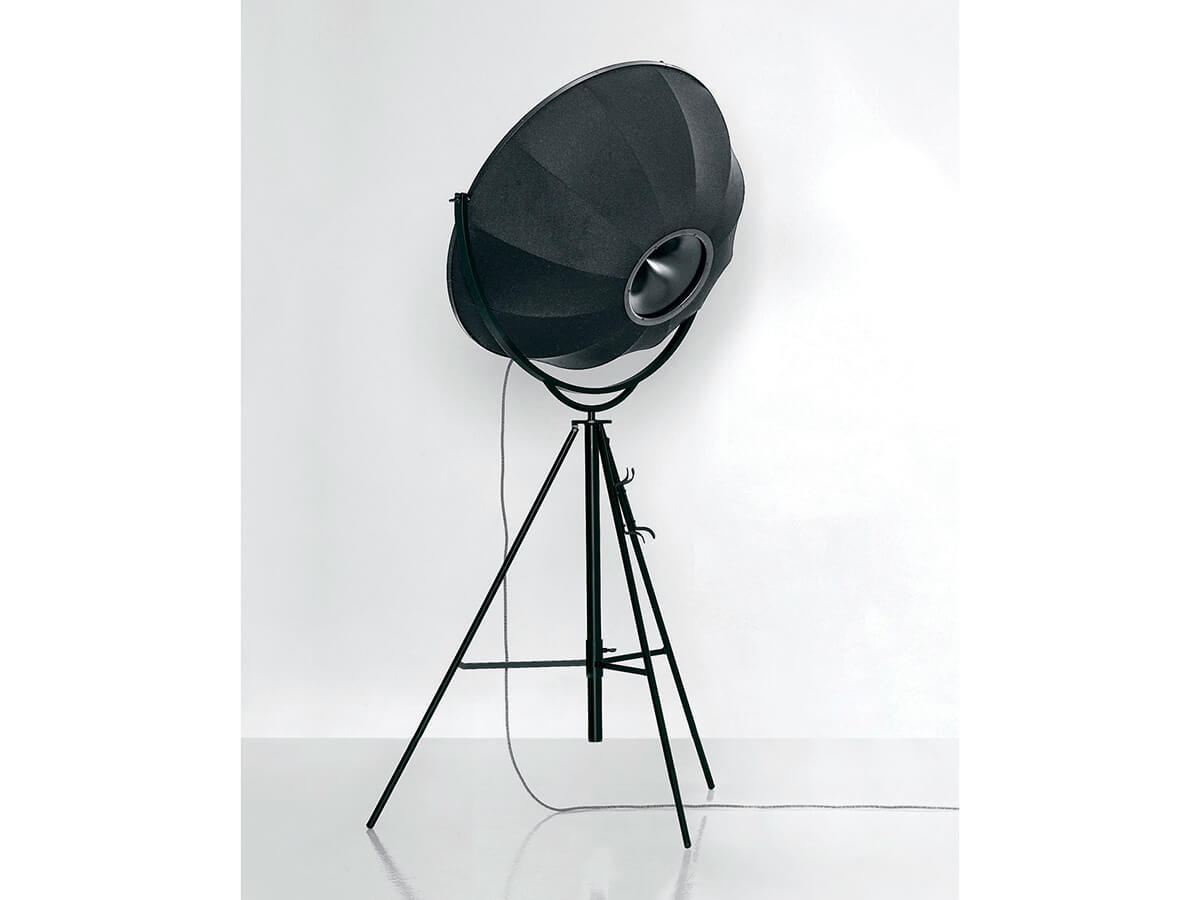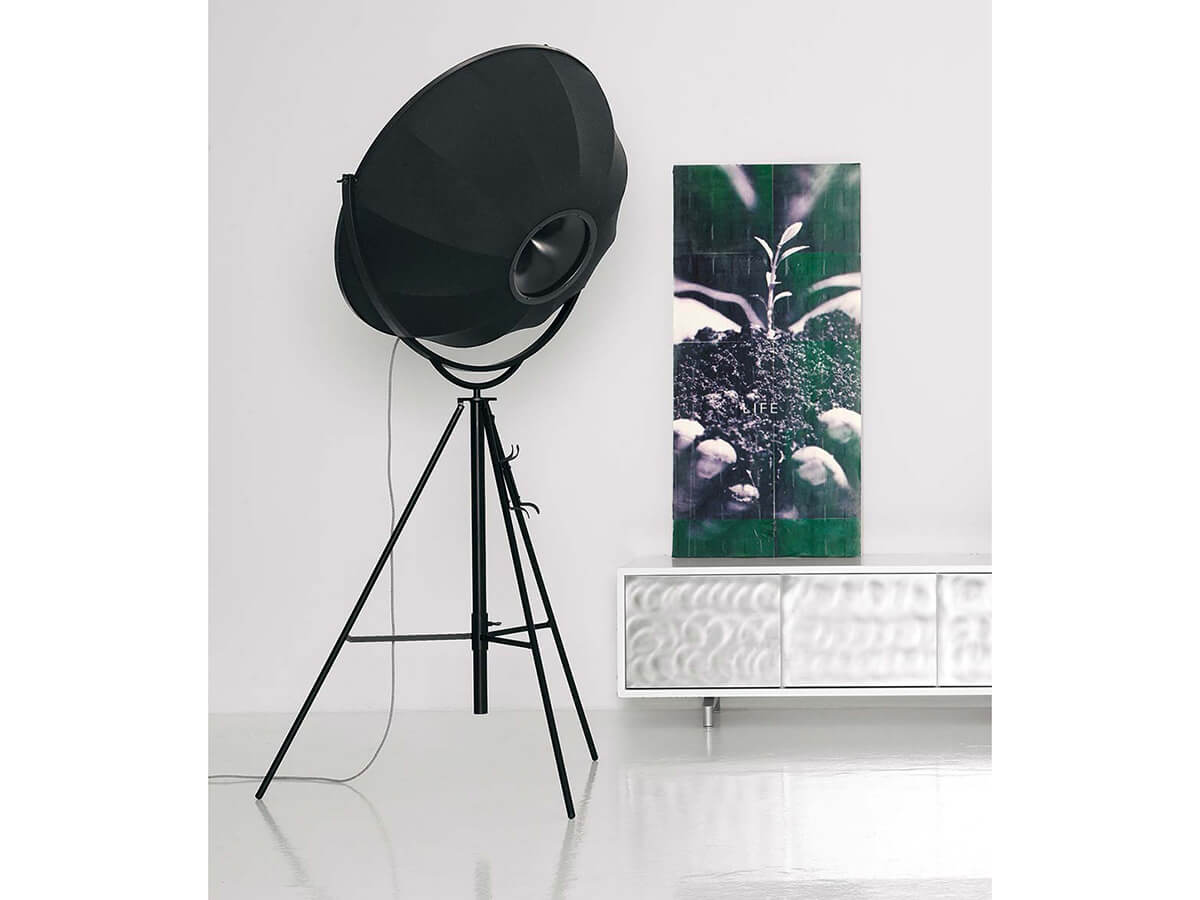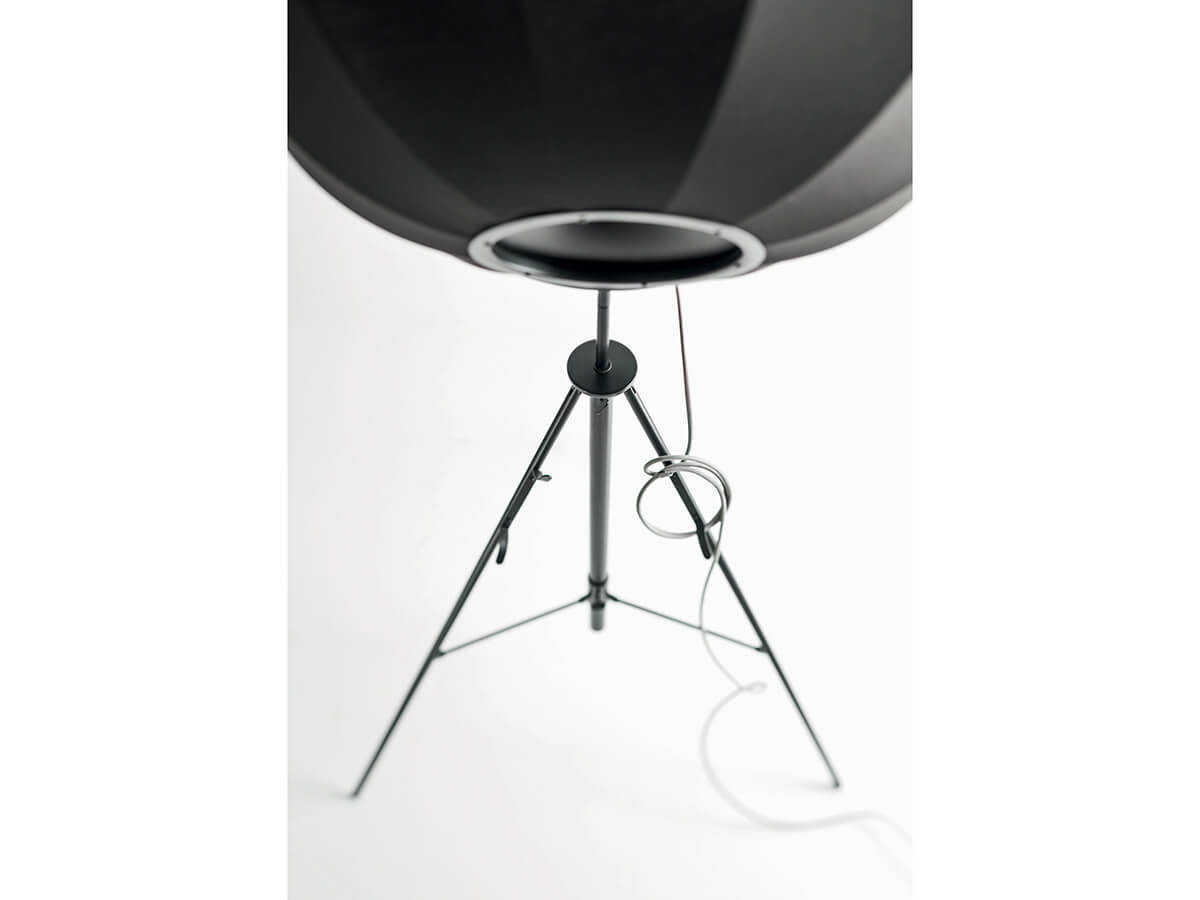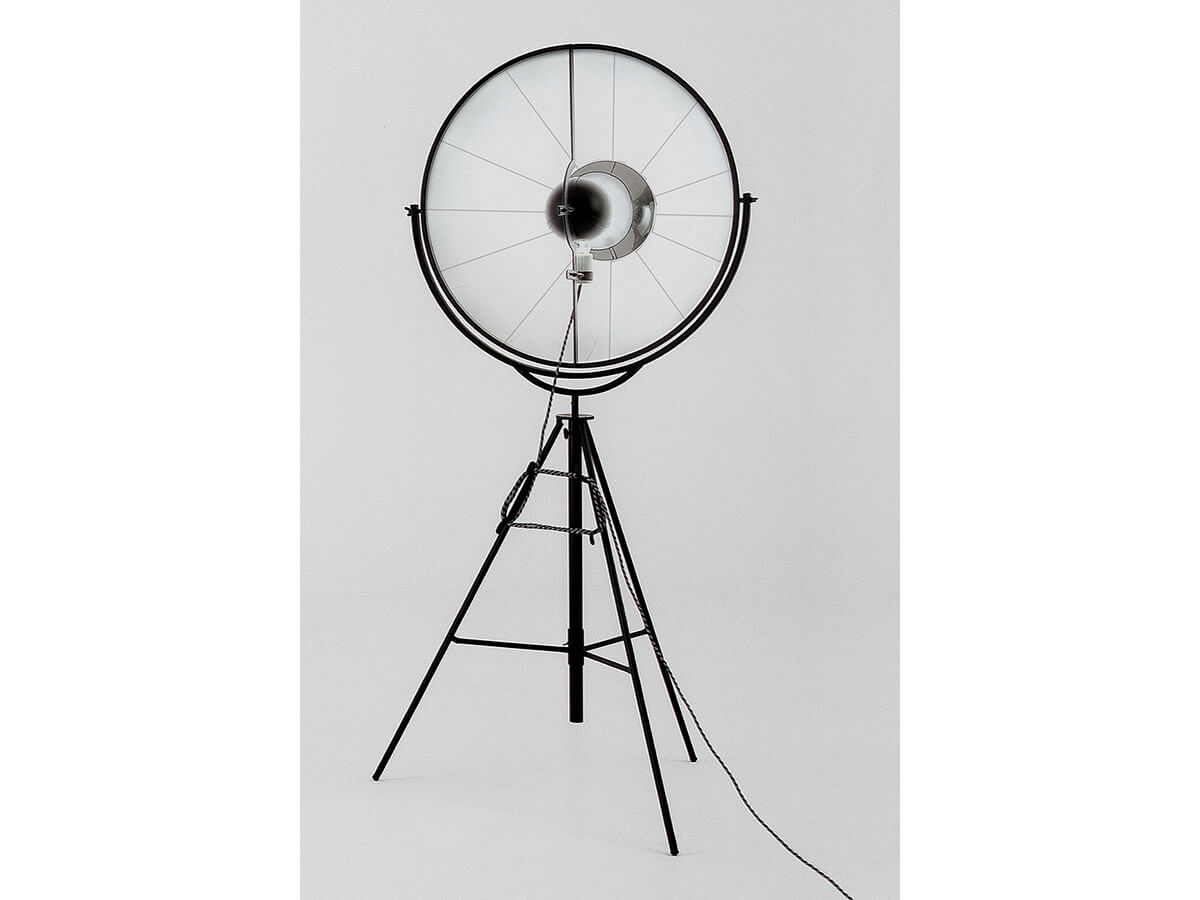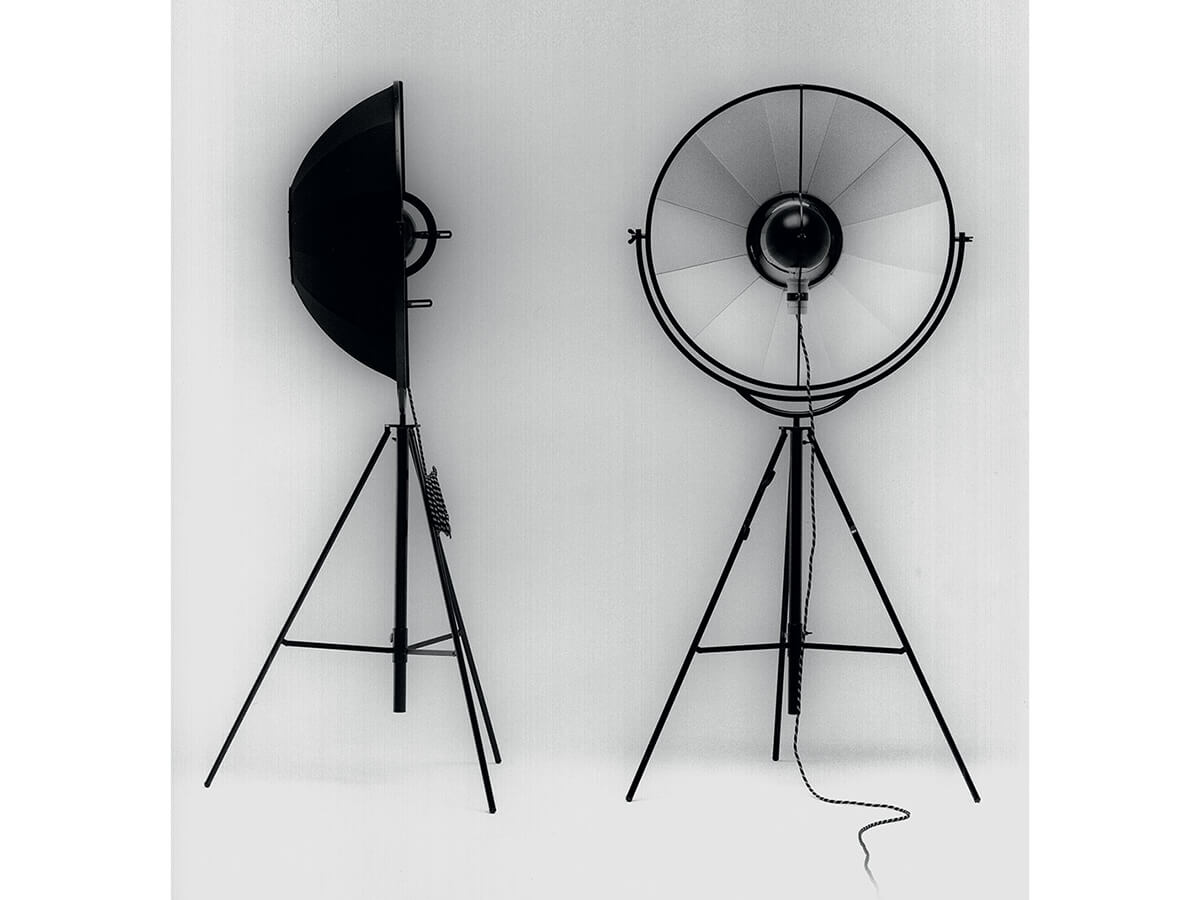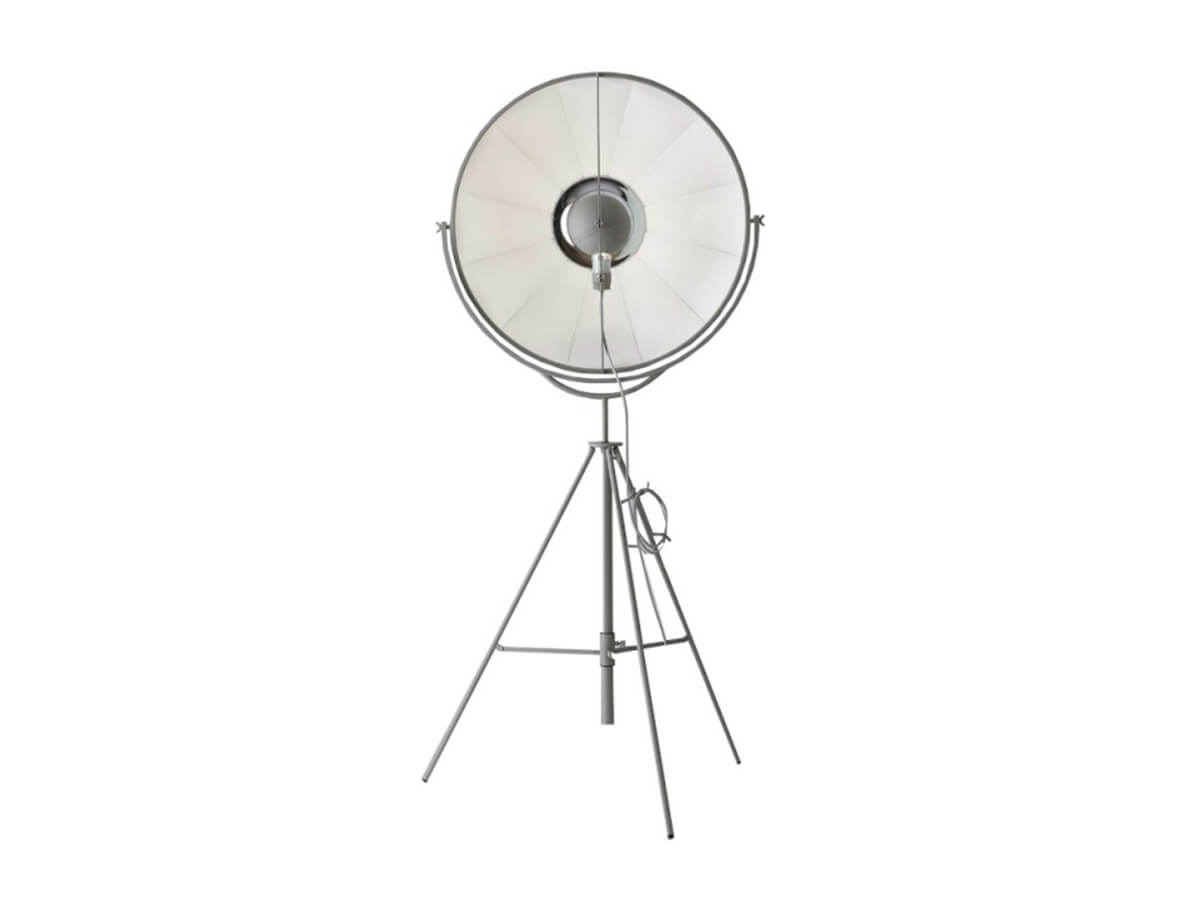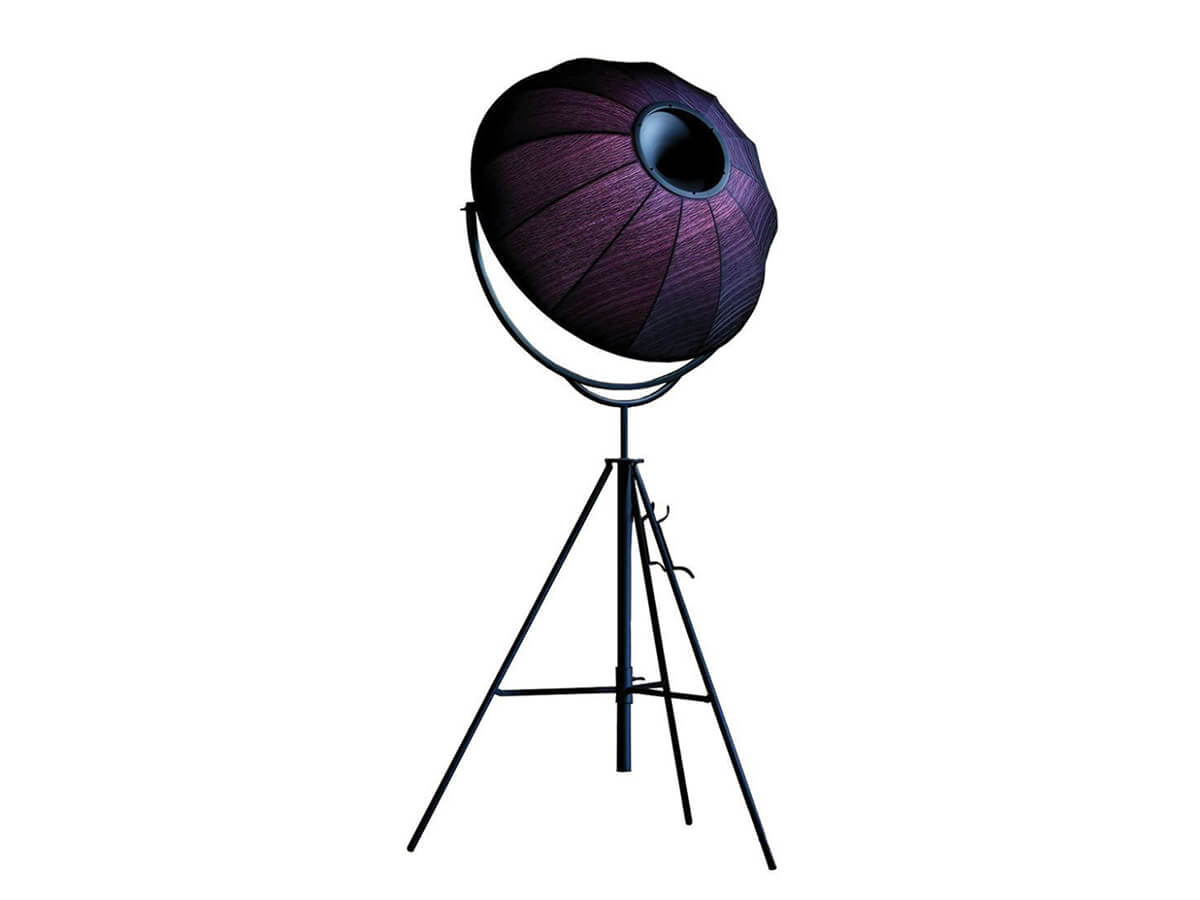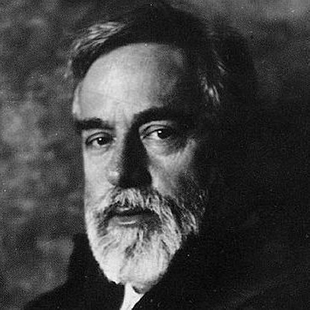Pallucco
Fortuny Floor Lamp
Black
Price starting from € 3.721,00*
*Price valid for the Black version in sizes Petite W.73 x D.77 x H.168/210 cm – black frame, shade with outer fabric in black cotton and inner fabric in white cotton – bulb included (cod. LAM 201 0 09956).
From the original 1907 model, the Fortuny lamp has been transmitted to us by continuing to renew itself and keep its splendor unchanged. Today it is considered a real contemporary work with a timeless taste. The knowledge and the design refinement that guided its realization continue today to give it prestige. The base was suggested by the camera tripod, with an adjustable central leg, while for the lampshade, Fortuny inverted the typical lampshades of the time, making them foldable and thus creating a tool to direct the light. Thanks to its strong personality, it can be placed in any room of the house or in public situations of yesterday and today.
W.93,5 x D.82 x H.190 - 240 cm
Available also in Version Petite W.73 x D.77 x H.168/210 cm
Salvioni Design Solutions delivers all around the world. The assembly service is also available by our teams of specialized workers.
Each product is tailor-made for the personal taste and indications of the customer in a customized finish and that is why the production time may vary according to the chosen product.
To discover the full range of services available, visit our delivery page.
Suggested versions (5)
Personalize your request
Sizes
Select
Select
Select
In its troubled history full of twists and turns, Pallucco has always been an inexhaustible cauldron of ideas, succeeding in making the most of the wealth of creative energies of whoever approaches it. His production is a melting pot of styles and eras, combining historic cult products of the '80s and '90s, rigorous early twentieth century re-editions and sophisticated contemporary creations, in a unique mix of unrivaled formal quality. Among the flagships of the Pallucco catalog is the famous Fortuny lamp by Mariano Fortuny y Madrazo. Focused mainly on lamps, Pallucco's production also extends to larger furniture and furnishings.Read more
Designed by
Mariano Fortuny y Madrazo
Mariano Fortuny y Madrazo (1871-1949), style icon of Venice at the beginning of the 20th century, can be considered an heir to the tradition of the "total artists" of the Renaissance. He was active as a painter, set designer, stylist, photographer, inventor and even light designer, today celebrated in Venice by a museum entirely dedicated to him, the Fortuny Museum, housed in the building where he lived and in which he implemented all his experiments. Son of the Catalan painter Marià Fortuny i Marsal, he left his native Spain at the age of three to move to Paris with his mother and from an early age showed a precocious talent for the treatment and decoration of fabrics, which would then culminate in his Venetian years (Fortuny moved to the Laguna in 1889, while remaining very attached to Paris) in a very successful fashion designer business throughout Europe. Fortuny can be considered a forerunner of the pleating technique: his clothes, like the famous Delphos which was inspired by the chiton shapes of Ancient Greece, were made of finely pleated silk thanks to a working system he kept secret. Another great passion of his was the theatre, which he approached as a young man cultivating a friendship with Richard Wagner who greatly influenced him with his ideal of Gesamkunstwerk, according to which the arts of different kinds had to blend harmoniously in a single "opera of total art” which was to take place on stage. Fortuny focused his attention in particular on the figurative part of the theater, creating sets and taking care of the lighting of the scene through a revolutionary system of indirect lights. It is from the stage that his activity as inventor and designer of lamps takes off, today reproduced by the Fortuny brand, direct heir of his atelier (which also operates with the Venetia Studium brand, dedicated to cushions and textile accessories for the home), and also made under license by Pallucco and the French Ecart. In his prolific activity as a painter Fortuny exhibited continuously at the Venice Biennale until 1942, while as an interior designer he dealt with projects such as the gaming room of the Hotel Excelsior in Paris or the residence of the Duchess Consuelo Vanderbilt.
Read more
